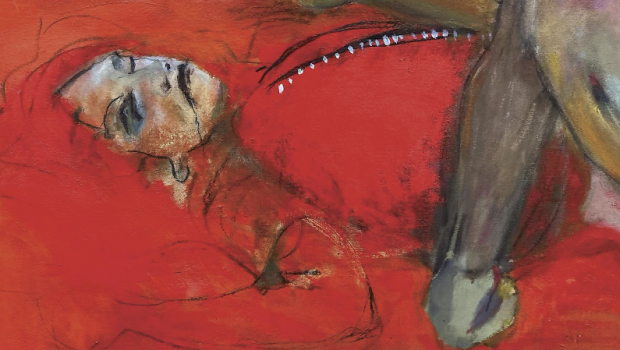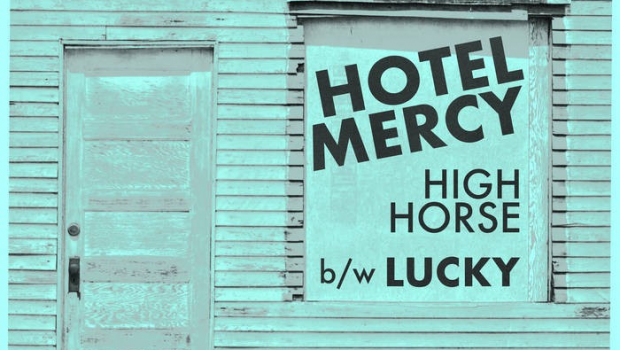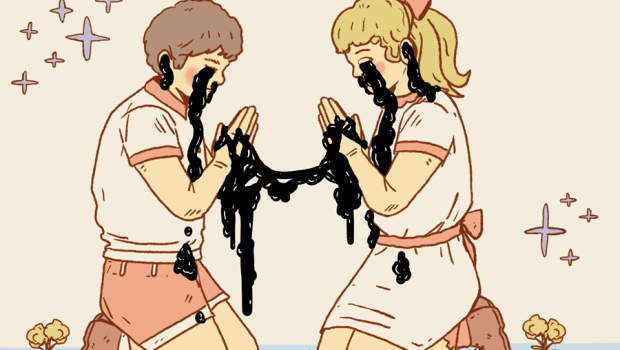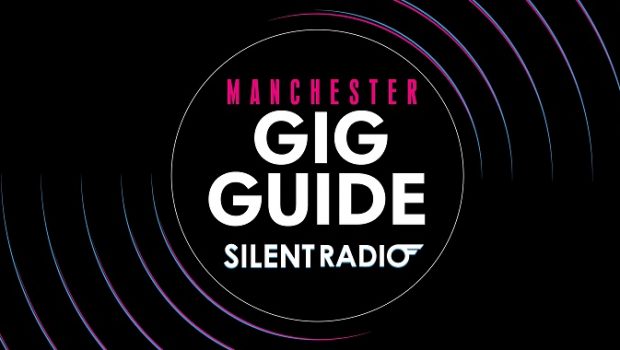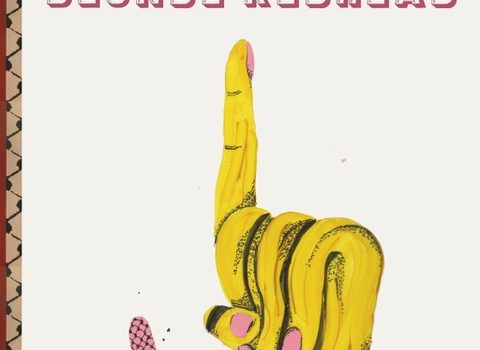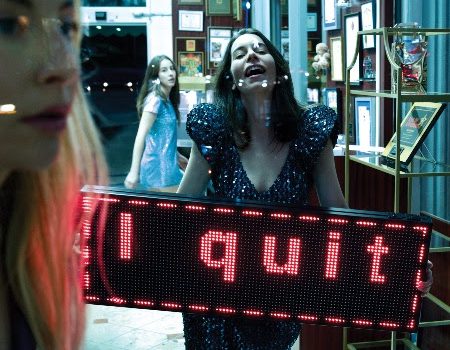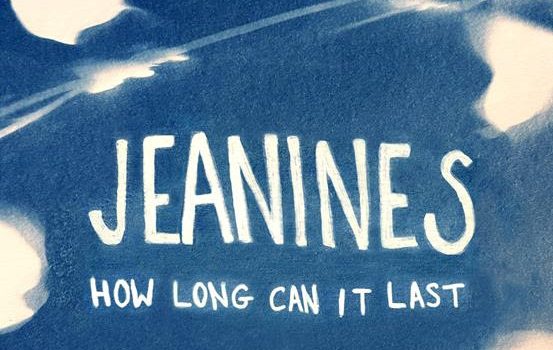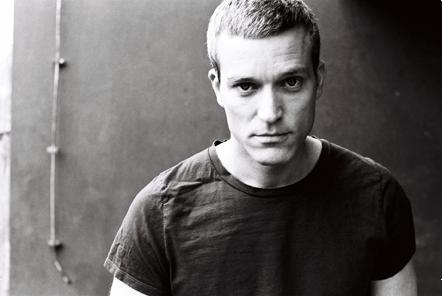 – THE WAREHOUSE PROJECT, MANCHESTER –
– THE WAREHOUSE PROJECT, MANCHESTER –
Why does the Warehouse Project hate me? I don’t know what I’ve done to offend them, unless giving them lots of money is offensive, and judging by the crowd tonight, and the crowds it has attracted over the last few years, it has certainly raked in its fair share from a sizeable portion of Manchester and beyond. I’m starting to have paranoid delusions that somewhere in a big brother style control room beneath Piccadilly train station, techies in front of video screens have singled me out and are describing me into security’s earpieces. Maybe I have a guilty face, but on the last three occasions that I’ve had the pleasure of visiting this Xanadu of corporate delight I’ve been subjected to security checks, for want of a better phrase, that might have seemed a bit thorough at check-point Charlie during the early eighties.
It’s the same every time: once past the guard of ticket checkers, clip-boarders, police, and police dogs, I have to run the gauntlet of the internal security which at times can be an experience bordering on the surreal. At MF Doom, having emptied my pockets for a rather severe eastern European (judging by his accent) bouncer, I had to explain my glucometre (blood-testing equipment) and insulin pen (I’m diabetic) in great detail. His scrutinous gaze and line of questioning was so intense that, five minutes later, when I’d been shunted in and ordered to move along so as not to block the door, he’d half convinced me that I was a lying heroin addict.
Tonight however, I’m on the guest-list, and if I encounter the same bouncer, I hope he’ll feel that a quick pat down will suffice this time. And sure enough, same guy. In pre-emptive compliance I empty my pockets on the table, trying to make an expression that at once asks for his recognition and appeals to his better nature, but probably comes out as that of a gazelle with its neck clenched in a lion’s jaws. I get a nice brisk pat down which includes the thrusting of his hands deep in my pockets (ooh, er), and the (oh yes, hello!) grope of the ol’ buttocks manoeuvre to check the back pockets. There are punters who would pay over the ticket price for this. I have a sense of deja vu as I explain what my blood tester and insulin pen are for. Then he pounces on a couple of interesting new items: a notebook and pen. Taking the top off the pen, he examines it before making a blue scribble on a piece of paper, presumably to test that it isn’t in fact a small weapon of mass destruction. Maybe he’s ex-KGB or something. When I ask him what that was all about he fixes me with a cold, hard stare and tells to pick up my things and get inside. Whatever you say sweetie.
 Going by his track titles, the brilliantly named, Joy Orbison (aka Peter O’Grady), is a man of few vowels. ‘BRKLN CLLN’, and his awesome 2009 debut on Hot Flush Records, ‘Hyph Mngo’, seemed to effortlessly straddle house, techno, garage and dub-step. Hyph Mngo’s infectious vocal “adieu” (or whatever it’s saying) refrain, built around big rolling kicks and moody chords, was a constant presence at 2009’s Outlook festival in Croatia, seemingly dropped by every DJ there. Orbison’s productions, and those of other Detroit-influenced up-tempo dub-steppers like Martyn and Scuba, marry the two drop with the 4/4, creating dancefloor material that is at once funky and dripping with emotion and soul, something that can be lacking in a lot of functional minimal techno and dub-step. He is a man of catholic tastes, citing My Bloody Valentine and the Beach Boys as influences, and his set hints at this. It’s eclectic in: house intermingles with dub-step and techno, before finishing on a big ravey number from Glasgow’s “numbers” imprint. He only seems to be on for about thirty minutes though before being pulled by the cane. I could have listened to a lot more of Joy.
Going by his track titles, the brilliantly named, Joy Orbison (aka Peter O’Grady), is a man of few vowels. ‘BRKLN CLLN’, and his awesome 2009 debut on Hot Flush Records, ‘Hyph Mngo’, seemed to effortlessly straddle house, techno, garage and dub-step. Hyph Mngo’s infectious vocal “adieu” (or whatever it’s saying) refrain, built around big rolling kicks and moody chords, was a constant presence at 2009’s Outlook festival in Croatia, seemingly dropped by every DJ there. Orbison’s productions, and those of other Detroit-influenced up-tempo dub-steppers like Martyn and Scuba, marry the two drop with the 4/4, creating dancefloor material that is at once funky and dripping with emotion and soul, something that can be lacking in a lot of functional minimal techno and dub-step. He is a man of catholic tastes, citing My Bloody Valentine and the Beach Boys as influences, and his set hints at this. It’s eclectic in: house intermingles with dub-step and techno, before finishing on a big ravey number from Glasgow’s “numbers” imprint. He only seems to be on for about thirty minutes though before being pulled by the cane. I could have listened to a lot more of Joy.
The theme of strange, borderline sexual harassment that began with the ex-KGB guy continues in a weird way inside when a couple of hours later, as Moderat takes the stage, I find myself in the middle of what feels like an enormous Tokyo subway carriage. Everyone’s bodies are shoved against one another in a sweaty circumstantial embrace, no one making eye contact or able to move, but everyone desperately trying to dance. Moderat look like a slightly ageing boy-band; Apparat and the Modselektors have clearly been subscribing to Bouffant Hairdo Monthly. Other than Kraftwerk, I can’t think of another bunch of men who could stand all in a row behind their synths on stage and be taken completely seriously. But then I have to eat my words: I don’t think I’ll ever see the day when I fail to be moved by a bit of high end, sub-bass and really nice and dirty digital bass line ripping through a Funktion One soundsystem. It’s just really visceral, powerful stuff. It’s why audiences, before the days of big blockbuster rollercoaster ride movies, like Avatar and the like, went to live orchestras to be lifted out of themselves by the sheer sonic spectacle. The problem tonight is that I’m packed in tighter than the proverbial sardine.
To my left a girl is gyrating on my leg, to the rear of me, some big bloke is grinding back and forth against my behind. There is no give in the throng around us and there is absolutely nothing I can do about it. I get the feeling that these two are interpreting my meek attempts to struggle free as dance moves. Maybe they’re trying to struggle free. It’s as absurd as it is unsettling, and makes the whole thing a bit weird.
For my own physical and mental well-being I duck out the side and head for the smoking area. A bouncer grabs my hand out of my pocket to check that I’m not concealing a drink. The smell of the quarter pounder burgers nearly makes me sick, so I seek refuge near the back as Hudson Mohawke comes on. I’ve seen Mohawke a few times, and each time it’s a very different affair, yet the prodigiously talented youngster always manages to infuse his sets with his trademark ‘wonky’ sound. I’ve seen him play what could almost be described as rave sets, but also seen him do straight hip-hop. At his last Warehouse appearance, supporting MF Doom, he played a live set, showcasing tracks from last years acclaimed ‘Butter’ album alongside some of his more recent material. Then, I’m not sure the crowd knew how to take his more shimmery electronic interludes, but tonight he is in party mode. It’s hard to define Mohawke’s music in terms of genre and perhaps it’s best not to try. He simply refers to it as ‘beats’. This is maybe a bit overly simplistic though. There’s lots of 8-bit midi sounds going on over complex time signatures. He begins with broken dancehall rhythms, before dropping into hip-hop and pulling off what sounds like a lot of live remixing- Snoop’s “drop it like it’s hot” has the vocal all pitched up chipmunk style, making it a bit creepy but still very danceable. He even throws in a bit of scratching as a nod to his battling days as a sixteen year old DMC champion.
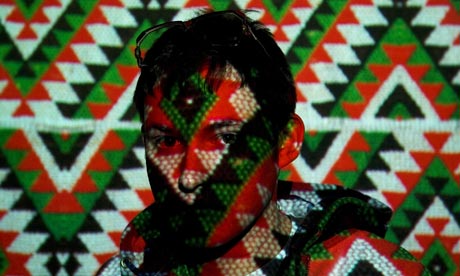 In the back room, a club within a club, Marcel Dettmann and Ben Klock seem to be doing a very long set. Unless it’s done well, this type of minimal, berghain-style dub techno can be monotonous. Like progressive and deep house, sets of this type of music can sometimes involve a DJ seamlessly mixing a bag of records that all sound the same for two hours, expecting the crowd to respond to the very subtle tonal changes in the music, but Dettman and Klock are masters of working a crowd. It’s housey, Berlin techno all night but it’s very nice techno, with lots of warm chords, and very jackin’. I read once that music with its tempo close to your heart rate keeps a floor dancing longest, and Dettman and Klock’s set has that effect on me. It creates a nice little environment that I don’t want to leave but sadly must to use the loo. The portaloos in here aren’t exactly salubrious, but I’m not complaining, when caught short I’ll pee behind anything that half-obscures me from the public, so I willingly enter the first one I see. My blood sugars feel a bit skew-whiff so I get the insulin pen out, but just before I give myself a jag I hear a knock at the door, which I ignore. The knock comes again. “what?”, I ask. What happens next takes me a few seconds to comprehend: as if by magic, the locked door opens, and there standing in the door-way is my old friend- the ex-KGB bouncer from the front door. “What’s that”, he asks, nodding at the insulin pen that I’m about to plunge into my arm.
In the back room, a club within a club, Marcel Dettmann and Ben Klock seem to be doing a very long set. Unless it’s done well, this type of minimal, berghain-style dub techno can be monotonous. Like progressive and deep house, sets of this type of music can sometimes involve a DJ seamlessly mixing a bag of records that all sound the same for two hours, expecting the crowd to respond to the very subtle tonal changes in the music, but Dettman and Klock are masters of working a crowd. It’s housey, Berlin techno all night but it’s very nice techno, with lots of warm chords, and very jackin’. I read once that music with its tempo close to your heart rate keeps a floor dancing longest, and Dettman and Klock’s set has that effect on me. It creates a nice little environment that I don’t want to leave but sadly must to use the loo. The portaloos in here aren’t exactly salubrious, but I’m not complaining, when caught short I’ll pee behind anything that half-obscures me from the public, so I willingly enter the first one I see. My blood sugars feel a bit skew-whiff so I get the insulin pen out, but just before I give myself a jag I hear a knock at the door, which I ignore. The knock comes again. “what?”, I ask. What happens next takes me a few seconds to comprehend: as if by magic, the locked door opens, and there standing in the door-way is my old friend- the ex-KGB bouncer from the front door. “What’s that”, he asks, nodding at the insulin pen that I’m about to plunge into my arm.
“Insulin”, I reply, slightly bemused. He closes the door. This incident makes me conclude either one of two things: 1. This man is suffering from severe memory loss, or 2. He’s following me around, desperately trying to catch me doing something I shouldn’t for which he can joyously bounce me onto the street. I do feel safe though, knowing that the security staff of the Warehouse Project are protecting us all from drugs, even life-saving ones.
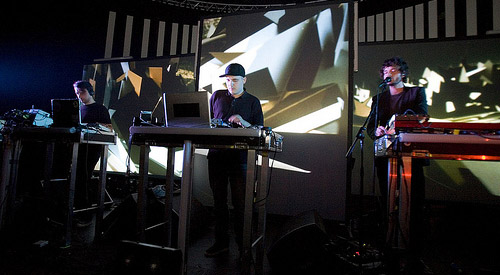 In the seated area at the back where people are splayed on huge bean-bags and deck chairs there is a large cinema screen. The name of the film appears to be ‘Bench’. I can’t quite follow the plot- it appears to involve a lot of CCTV footage and cool MTV-style video trickery with the word ‘bench’ flashing up every couple of seconds. Maybe Bench is one of the acts, but I can’t remember seeing his or her name on the bill. But ah, of course, Bench the clothing label. What better way to sell people street wear than when they’re lounging about on bean-bags, at ease with the world, all packaged up for them in such a slick, almost subliminal corporate way. Of course, it could be argued that the entrepreneurial spirit was present from the genesis of modern dance music, but at £20 a ticket (plus booking fee) with a venue at full capacity, is there really a need for extra corporate gloss. I know the big-hitters in dance music are paid handsomely, but does the night have to jump into bed with big business like this?
In the seated area at the back where people are splayed on huge bean-bags and deck chairs there is a large cinema screen. The name of the film appears to be ‘Bench’. I can’t quite follow the plot- it appears to involve a lot of CCTV footage and cool MTV-style video trickery with the word ‘bench’ flashing up every couple of seconds. Maybe Bench is one of the acts, but I can’t remember seeing his or her name on the bill. But ah, of course, Bench the clothing label. What better way to sell people street wear than when they’re lounging about on bean-bags, at ease with the world, all packaged up for them in such a slick, almost subliminal corporate way. Of course, it could be argued that the entrepreneurial spirit was present from the genesis of modern dance music, but at £20 a ticket (plus booking fee) with a venue at full capacity, is there really a need for extra corporate gloss. I know the big-hitters in dance music are paid handsomely, but does the night have to jump into bed with big business like this?
The Warehouse Project has become totemic in UK club culture. It’s become a Mecca for the discerning clubber in the way that clubs like Cream and the Hacienda once were. And on the surface the WHP is a continuation of this: big venue, big crowd, great system, and it’s hard to find fault with the programming- all aspects of modern dance music are represented, and by theme. Whether it be hip-hop (MF Doom), Drum n Bass/ Dub-step (Ape), or techno (Cocoon), or tonight’s housey-dubstep meets techno offering, everything has been well-thought out and slickly packaged. But a corporate element has crept in, leaving something slightly soul-less at the heart. The spirit of moments in time where a city was switched on to the new sounds coming out of Detroit and Chicago, in nexus with the glorious abandon of a new dance drug, shifted long ago to smaller nights like Electric Chair, and now, to real, free, warehouse parties in places like Ancoats and upstairs pub venues across the city. To the outside world Manchester may be Oasis, Manchester United, The Warehouse Project. But one of the reasons why dance music is still vibrant in this town is that people are still willing to take a punt on a flyer for a small night run by mates for mates, where they might find a strobe light and some sub-bass, in a dirty basement, somewhere in the city’s nooks and crannies.
I pass the ex-KGB bouncer on the way out.
“night night”, I say,
“night”, he offers, with the faintest glimmer of a smile. Maybe he’s not such a bad bloke after all.


